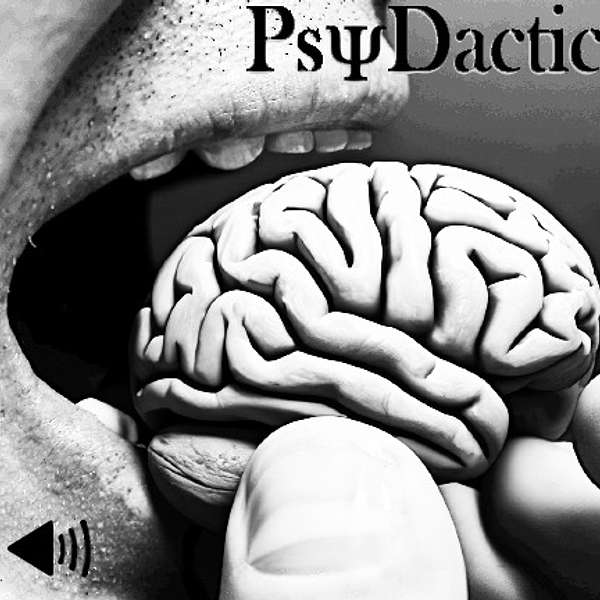
PsyDactic
A resource for psychiatrists and other medical or behavioral health professionals interested in exploring the neuroscientific basis of psychiatric disorders, psychopharmacology, neuromodulation, and other psychiatric interventions, as well as discussions of pseudoscience, Bayesian reasoning, ethics, the history of psychiatry, and human psychology in general.
This podcast is not medical advice. It strives to be science communication. Dr. O'Leary is a skeptical thinker who often questions what we think we know. He hopes to open more conversations about what we don't know we don't know.
Find transcripts with show-notes and references on each episodes dedicated page at psydactic.buzzsprout.com.
You can leave feedback at https://www.psydactic.com.
The visual companions, when available, can be found at https://youtube.com/@PsyDactic.
PsyDactic
In a Word - Dissociation
Use Left/Right to seek, Home/End to jump to start or end. Hold shift to jump forward or backward.
This episode is the second in an intermittent series I am calling In A Word. Psychiatry is full of terms that are either poorly defined or used in such broad ways that they are not very helpful by themselves. Trying to come to terms with terms we throw around can help us to understand the conditions we treat better, and hopefully will help us to communicate more precisely and effectively in the future. Dissociation is a word that has frustrated me. I have heard it used to describe everything from daydreaming to a feeling of complete detachment of someone from their own body to having lost a previous identity and adopted a new one. The term is used to describe various aspects of many psychiatric disorders. It is prominently featured in disorders like borderline personality disorder and post-traumatic stress disorder. There is even a controversial diagnosis called Dissociative Identity Disorder.
At the end, I give ChatGPT another go.
Please leave feedback at https://www.psydactic.com or send any comments to feedback@psydactic.com.
References and readings (when available) are posted at the end of each episode transcript, located at psydactic.buzzsprout.com. All opinions expressed in this podcast are exclusively those of the person speaking and should not be confused with the opinions of anyone else. We reserve the right to be wrong. Nothing in this podcast should be treated as individual medical advice.
Podcasts we love
Check out these other fine podcasts recommended by us, not an algorithm.

Mindhunting: Journeys in Forensic Psychiatry
Dr Michael Schirripa
Brain Science with Ginger Campbell, MD: Neuroscience for Everyone
Ginger Campbell, MD
